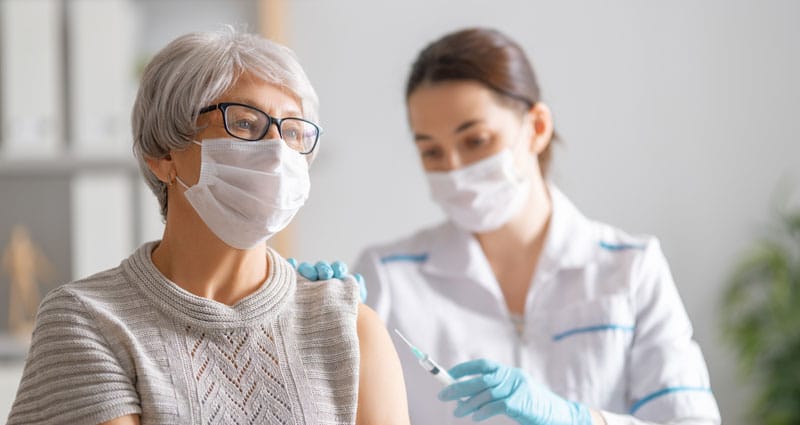Nearly a year into the COVID-19 pandemic, the hottest topics are now the vaccines. Here’s what you need to know about the COVID-19 vaccines.
Two vaccines have been approved for emergency use by the Food and Drug Administration and both require two doses for full vaccination to be achieved. The doses of the Pfizer-BioNTech vaccine are given three weeks apart, and the doses of the Moderna vaccine are given one month apart. Currently, those at higher risk of contracting or having serious complications from COVID-19 are being prioritized for the vaccine, including healthcare workers and older adults. As more doses and more vaccines from other companies are approved and become available, more of the community will be eligible for the vaccine.
Keep Your Vaccination Record
When you get your vaccination, you will be given a vaccination card that serves as a record of which vaccine you got and on what date. Keep this in a safe place because you will need it to get your second dose and beyond that to prove you have been vaccinated. Protection from the virus begins 14 days after receiving the first dose, but you’ll need both doses of the vaccine to be fully vaccinated and protected from COVID-19.
What are the side effects?
The side effects reported by those who have received these two vaccines have been mild to moderate and included arm soreness where the vaccine was given, fatigue, headache and a low-grade fever. Every vaccine comes with a small risk of side effects, and these side effects are much less serious than being infected with COVID-19.
Keep Following the Guidelines
More vaccines are being tested in clinical trials, including a vaccine safe for children under the age of 15. Until large numbers of the population are fully vaccinated, life will look much the same as it has since March 2020. Continue following Centers for Disease Control and Prevention guidelines, including wearing a mask over your mouth and nose and staying at least six feet away from others when in public, washing your hands often and thoroughly with soap, and using hand sanitizer if soap and water are not available. Since we don’t know whether vaccinated people can still spread COVID-19 while showing no symptoms, we need to remain vigilant about following the guidelines in place.
Please continue to protect yourself and other members of our community as more people receive vaccinations.




